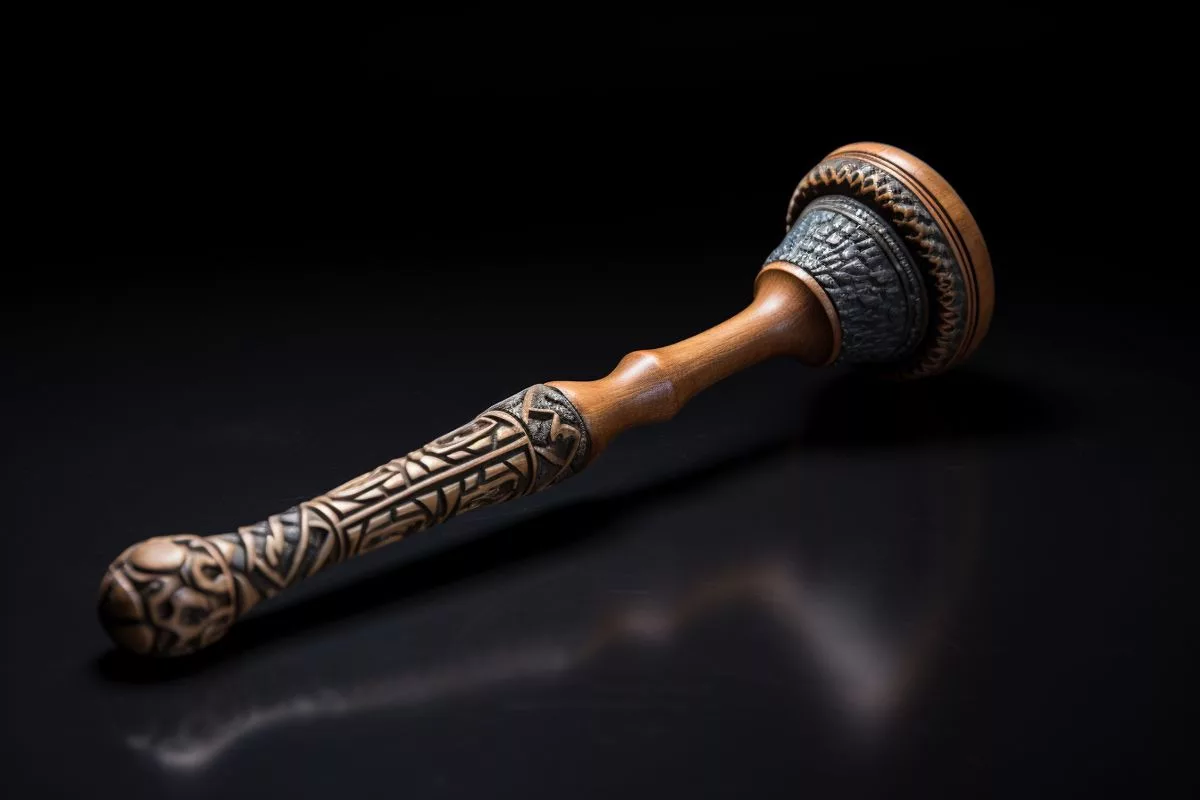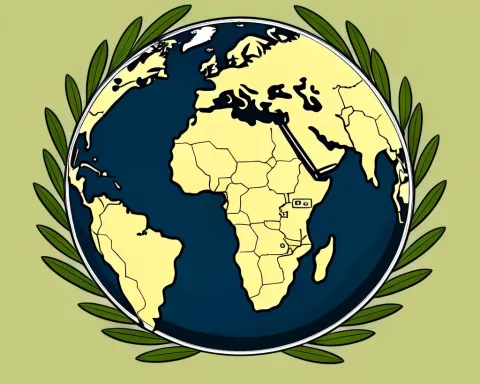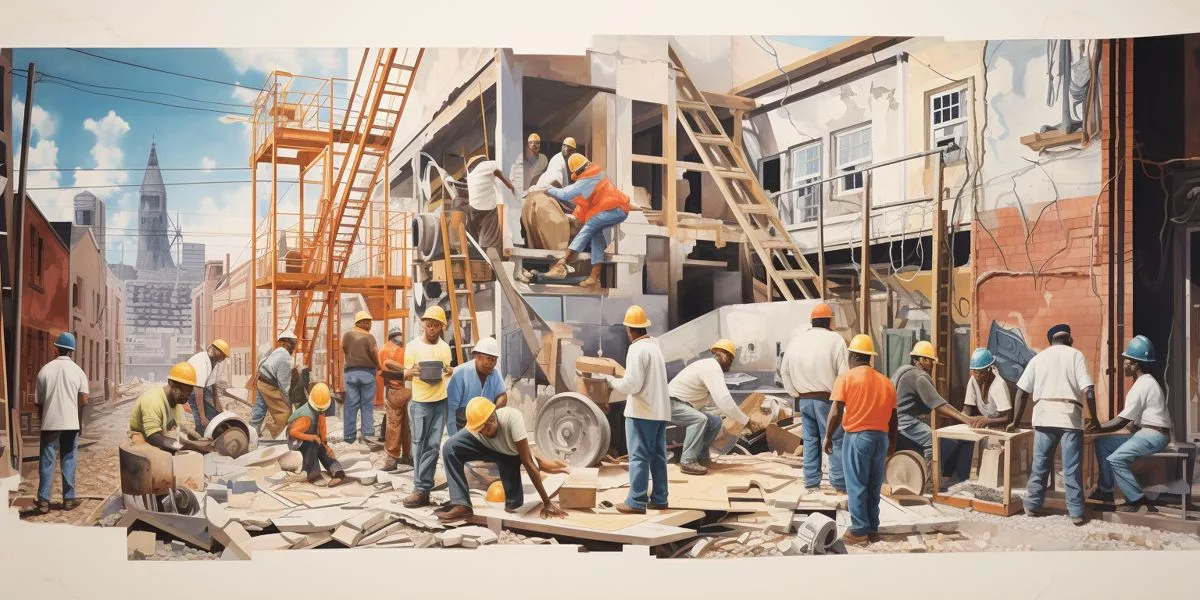The Zulu monarchy in South Africa is in limbo after a court ruled the recognition of King Misuzulu Zulu as “unlawful.” Prince Simakade’s challenge has sparked a bitter feud among rival claimants, raising questions on traditional customs and their role in the nation’s legal framework. The Zulu monarch holds considerable moral authority and oversees nearly 30,000 square kilometers of land, making state recognition critical for accessing government support and resources. The case highlights the need for a delicate balance between preserving traditional customs and upholding the rule of law.
Unlawful recognition of King Misuzulu Zulu has thrown South Africa’s Zulu monarchy into limbo. Prince Simakade’s challenge has sparked a bitter feud among rival claimants, raising questions on traditional customs and their role in the nation’s legal framework. The Zulu monarch holds considerable moral authority and oversees nearly 30,000 square kilometers of land, making state recognition critical for accessing government support and resources. The case highlights the need for a delicate balance between preserving traditional customs and upholding the rule of law.
A Shaking Decision: The Unlawful Recognition of King Misuzulu Zulu
South Africa’s socio-political milieu recently experienced an unprecedented shockwave following a court ruling that declared the state’s recognition of King Misuzulu Zulu as “unlawful”. This unexpected verdict not only caught President Cyril Ramaphosa and the Zulu monarch off guard but also threatens to reignite dormant succession conflicts.
This unsettling chain of events was orchestrated mainly by the King’s elder brother, Prince Simakade, who plays a critical role in this royal conflict. The ruling of the Pretoria high court, which the Prince sought, declared that Ramaphosa’s recognition of the King during the grand ceremony in October of the previous year was illegitimate. The court subsequently ordered Ramaphosa to initiate an investigation into whether Misuzulu Zulu’s tumultuous ascent complied with customary laws.
As the legal fraternity delves into the judgement’s complexities, the country is left contemplating traditional customs and their role in the nation’s legal framework. Struggling to balance tradition and legality, South Africa finds itself in a quandary, wrestling with the intricate relationship between culture and constitution.
A Rocky Ascent: The Turbulent Journey to the Zulu Throne
Misuzulu Zulu’s path to the throne has been fraught with countless difficulties, including numerous legal confrontations before his coronation. The contention escalated following the death of King Goodwill Zwelithini in 2021, sparking a bitter feud among rival claimants, which consequently postponed the traditional coronation until August 2022.
Prince Simakade, despite being born out of wedlock but being the late King’s eldest son, enjoys public endorsement from a faction of dissenting relatives. His challenge to Misuzulu Zulu’s claim is rooted in a series of unexplained deaths preceding the latter’s coronation. Amid such turbulent circumstances, Misuzulu Zulu has called for “peace and unity”, denying allegations of poisoning following a close advisor’s sudden death.
Contrasting expert opinions further complicate the situation. Historian and cultural analyst Pitika Ntuli argues that the AmaZulu nation is currently kingless, as state recognition of the king is a legal requirement. On the other hand, University of KwaZulu-Natal African languages professor and cultural expert Gugu Mazibuko firmly backs the monarch, asserting that all traditional processes were adhered to before the President’s recognition.
The High Stakes: Land, Power, and the Zulu Monarch
The Zulu monarch, recognized by South Africa’s constitution, holds no executive powers but possesses considerable moral authority. Amid the escalating chaos, it’s crucial to understand that the stakes are high. The king inherits nearly 30,000 square kilometers of land, roughly the size of Belgium, overseen by the Ingonyama Trust. This vast area isn’t just land; it’s a significant revenue source.
Mazibuko highlights a stark divergence in succession protocols between the Zulu and Western cultures, emphasizing that the Zulu culture cannot be interpreted through a Western perspective. State recognition, which validates the Zulu ruler, is critical for accessing government support and resources. Traditionally, the Zulu monarch’s lifestyle is opulent, with King Goodwill Zwelithini receiving a generous annual budget to govern his kingdom.
Rethinking Tradition: The Interplay of Zulu Culture and the State’s Legal System
The compelling need to reassess the concept of traditional courts arises due to the complex fusion of Zulu culture and the state’s legal system. The advent of democracy in 1994 left many gaps in the processing of customary laws, culminating in the current predicament. The Zulu throne has always been contentious, and this instance serves as a case study for the government to rethink its approach towards customary issues.
As the nation anticipates the royal drama’s unfolding, the Zulu monarchy’s future teeters on the edge. This case highlights the need for a delicate balance between preserving traditional customs and upholding the rule of law. South Africa’s progression towards this equilibrium will significantly impact its future socio-cultural and political trajectory.
What led to the court’s verdict deeming the recognition of King Misuzulu Zulu as “unlawful”?
Prince Simakade challenged the recognition of King Misuzulu Zulu as “unlawful,” which led to a court ruling in favor of the challenge. The ruling declared that the state’s recognition of the King during the grand ceremony in October of the previous year was illegitimate, and President Cyril Ramaphosa was ordered to initiate an investigation into whether Misuzulu Zulu’s ascent complied with customary laws.
What challenges has Misuzulu Zulu faced in his journey to the Zulu throne?
Misuzulu Zulu has faced numerous legal confrontations before his coronation, including a bitter feud among rival claimants following the death of King Goodwill Zwelithini in 2021. Prince Simakade, who is the late King’s eldest son but was born out of wedlock, challenged Misuzulu Zulu’s claim, citing a series of unexplained deaths preceding the latter’s coronation.
What are the high stakes involved in the Zulu monarchy?
The Zulu monarch holds considerable moral authority and inherits nearly 30,000 square kilometers of land overseen by the Ingonyama Trust. This vast area is a significant revenue source, and state recognition is critical for accessing government support and resources. Traditionally, the Zulu monarch’s lifestyle is opulent, with the previous King, Goodwill Zwelithini, receiving a generous annual budget to govern his kingdom.
Why is it crucial to reassess the concept of traditional courts in South Africa?
The interplay of Zulu culture and the state’s legal system has left many gaps in the processing of customary laws, culminating in the current predicament. The need to reassess the concept of traditional courts arises due to the complex fusion of Zulu culture and the state’s legal system. The Zulu throne has always been contentious, and this instance serves as a case study for the government to rethink its approach towards customary issues.
What is the role of traditional customs in South Africa’s legal framework?
The case highlights the need for a delicate balance between preserving traditional customs and upholding the rule of law. Traditional customs play a crucial role in South Africa’s legal framework, but their interplay with the constitution can be complex. The Zulu monarch’s ascent and recognition serve as a case study for the country to find this balance and preserve its rich cultural heritage while upholding the rule of law.
What impact will South Africa’s progression towards balance between tradition and legality have on its future?
South Africa’s progression towards a delicate balance between preserving traditional customs and upholding the rule of law will significantly impact its future socio-cultural and political trajectory. As the nation anticipates the royal drama’s unfolding, the Zulu monarchy’s future teeters on the edge, and the country’s approach towards customary issues will shape its future.












